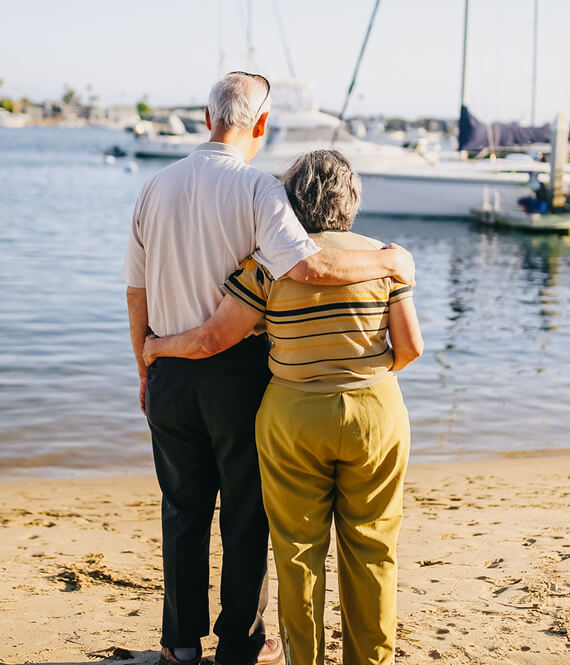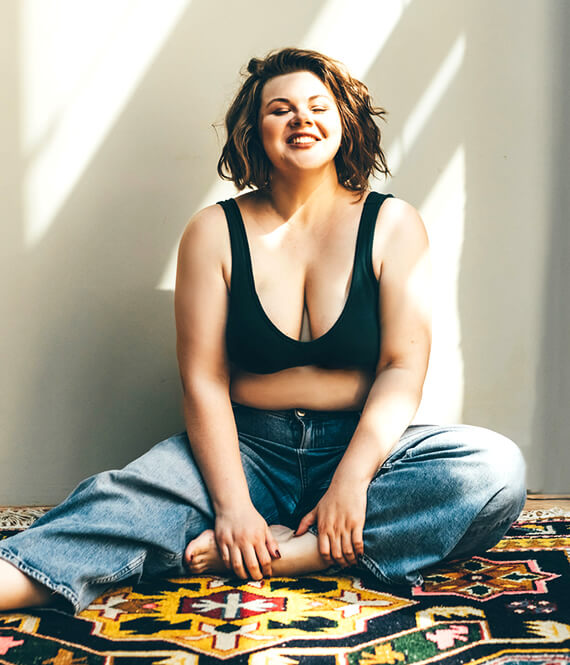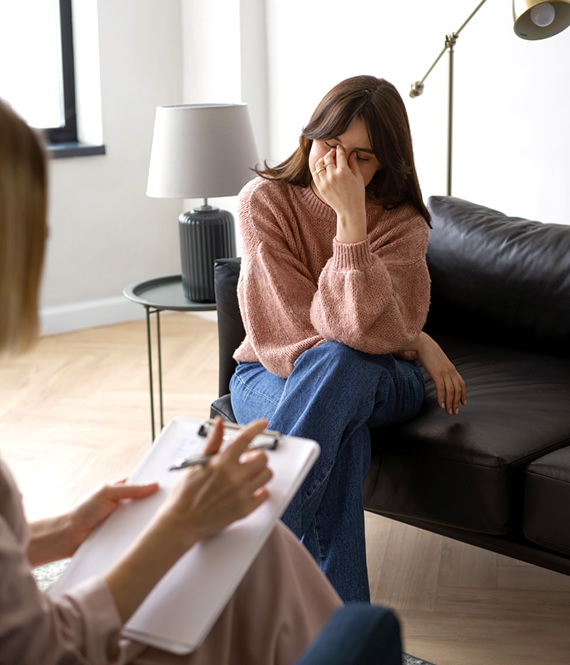
How to Help Your Senior Loved Ones To Cope With Anxiety
We recommend helpful products in our articles. Read our full disclosure here. The content on this website is not intended to be a substitute for professional advice, diagnosis, or treatment.
In the United States, anxiety is the most common mental health disorder.
Although anxiety can occur in people of all ages, adults tend to suffer the most from the disorder.
According to the National Alliance on Mental Illness, about 40 million adults in the U.S. have some form of anxiety.
And according to the Geriatric Mental Health Foundation, about 10 to 20% of older adults in the United States suffer from anxiety.
However, the disorder often goes undiagnosed for a variety of reasons.
More times than not, anxiety is left undiagnosed because the patient or doctor determines that the symptoms the patient is experiencing are due to a different reason.
It might be the medications they’re on, other disorders they may have, or because they’ve felt these feelings for so long, they begin to think they’re completely normal.
What is Anxiety
Anxiety is a normal thing to feel.
When people experience anxiety, it is the body’s way of dealing with dangerous or strange situations.
When someone experiences anxiety, feelings such as worry, fear, or nervousness can occur.
However, if anxiety interferes with normal daily activities and routines, it may indicate a disorder.
Signs and Triggers of Anxiety
Each type of anxiety can have its own triggers, signs, and symptoms. Learning these allows you to help identify what type of anxiety your senior loved one may have. For example, anxiety can result from chronic grief, excessive caffeine intake, other illnesses like dementia, and stress.
The main signs of anxiety are worry, fear, and nervousness.
However, other symptoms include unusual behavior, hoarding, depression, alcohol abuse, insomnia, and panic.
Everyone experiences anxiety in his or her own unique way.
Try to observe your senior loved one to identify any of these signs of anxiety.
Types of Anxiety In Seniors
There are several types of anxiety disorders.
However, the four most common types of anxiety are Generalized Anxiety Disorder (GAD), Panic Disorder, Obsessive-Compulsive Disorder (OCD), and Social Anxiety Disorder.
Knowing which type of anxiety a senior loved one suffers from will make it easier to help him or her cope with it.
1. Generalized Anxiety Disorder (GAD)
People who suffer from GAD are usually in a constant state of worry.
They tend to worry about both little and big things, even when they know there may be nothing to worry about.
When older adults suffer from GAD, they can experience symptoms such as insomnia, nausea, chest pains, and irritability.
If your senior loved one has GAD, encourage her to talk to a counselor.
Sometimes dealing with the problem head-on is useful; if your loved one is worried about finances, talking with a financial advisor may help.
2. Panic Disorder
Possibly one of the most easily recognized anxiety disorders is panic disorder.
People who have panic disorder usually suffer from panic attacks that can be brought on by a phobia or for no clear reason at all.
When seniors suffer from panic disorder, they tend to mistake their panic attacks for heart attacks.
To help senior loved ones cope with this type of anxiety, encourage calmness by doing breathing practices together, holding them tightly, or getting away from the object that caused panic.
3. Obsessive-Compulsive Disorder (OCD)
Usually, when people speak about having OCD, they think of having all the picture frames perfectly aligned or having everything organized a certain way.
However, these OCD behaviors are on the mild side of the spectrum.
Severe OCD consists of having to perform rituals or routines to overcome fearful thoughts.
For example, an individual may feel like he has to lock the front door multiple times to feel confident that no one will break in.
Depending on the severity of this disorder, your senior loved one may need to attend behavioral therapy with a psychologist and/or take prescription medications.
If their OCD is more on the mild side, simply retraining them to avoid ritualistic behavior may help.
4. Social Anxiety Disorder
Social anxiety disorder is more than just being shy.
People who suffer from this disorder are often fearful of social situations, whether it’s a one-on-one conversation or a large group setting.
Their fear and anxiety come from worrying about being embarrassed, not knowing what to say, or being judged.
To help senior loved ones cope with this type of anxiety, go to social events with them.
Start small and work your way up to larger crowds.
Introduce them to new people and help them carry on a conversation so they can practice normal social interaction.
Other Ways to Help a Senior Cope with Anxiety
Just as everyone experiences anxiety in a unique way, they also cope with it in their own way.
The important thing to remember when helping a senior loved one cope with anxiety is staying calm and trying not to be forceful.
You’ll want to reassure them that you’re trying to help without being too overbearing.
Instead of pressuring them to do something, please encourage them to try something out of their comfort zone.
Always remind them that you know what their fears are, but also let them know why their worries might not be as realistic as they seem.
There are a few daily activities your senior loved one can do independently to help cope with anxiety.
Daily exercise, meditation, and avoiding caffeine, tobacco and alcohol can go a long way toward reducing anxiety.
Mental Health Benefits with Medicare
Most seniors have Medicare as their primary form of health insurance.
Fortunately, Medicare offers many mental health care benefits.
With Medicare Part B, your senior loved one can receive medically necessary services such as:
- Annual wellness visit
- Annual depression screening
- Family counseling
- Psychiatric evaluation
- Psychotherapy (individual and group settings)
Some of these services are covered at 100%, while others are covered at 80% by Part B.
Depending on the type of Medicare coverage your loved one has, there may be a coinsurance or copayment for the service as well.
If your senior loved one’s anxiety disorder is severe, a visit to the doctor is in order.
Your primary care doctor can make referrals for counseling, behavioral therapy, or other treatments to help your loved one live more comfortably.













Leave a Comment